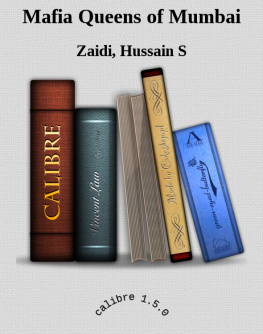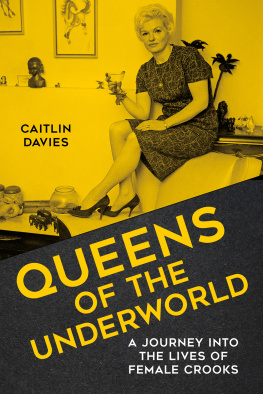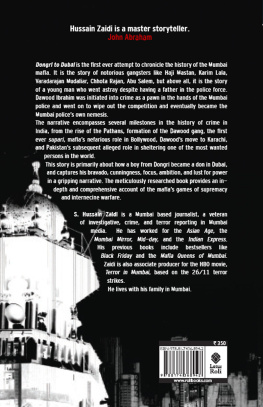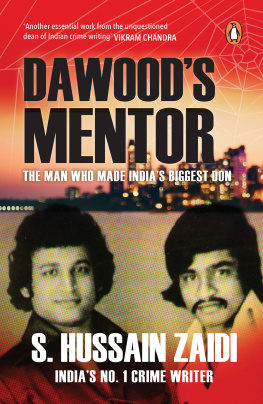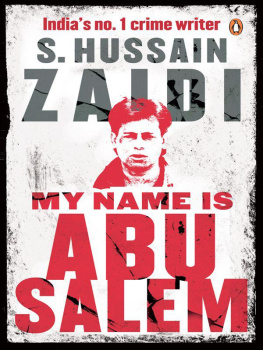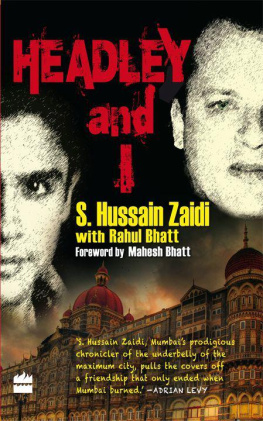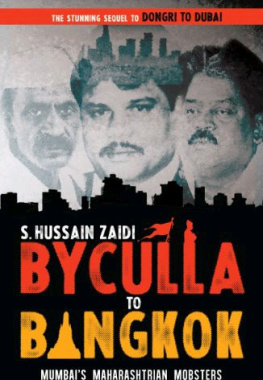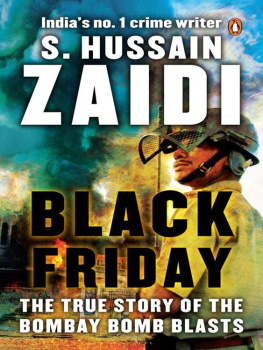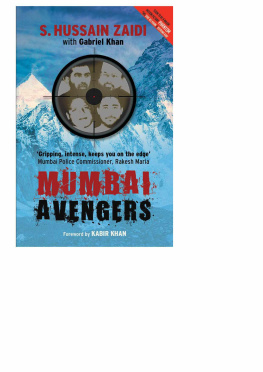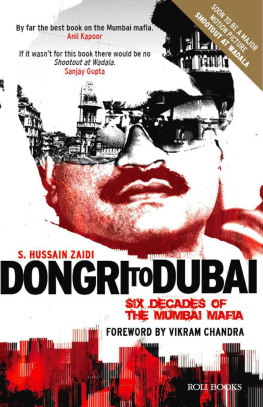
TRANQUEBAR PRESS
MAFIA QUEENS OF MUMBAI
S. Hussain Zaidi is a veteran journalist, currently working as the Resident Editor of the Deccan Chroncle / Asian Age, Mumbai. His earlier bestselling book Black Friday, based on the Mumbai serial blasts of 1993, was made into an acclaimed film of the same name by Anurag Kashyap. Alex Perry, while reviewing the book for Time magazine, said: The undeniable strength of Black Friday is the depth and intelligence with which Zaidi portrays the bombers themselves. In penetrating this closed world, Zaidi ridicules the shorthand caricature of terrorists so popular nowadays: that they are evil, fanatic or mad.
Zaidi is also associate producer of the HBO production of Terror in Mumbai, a documentary based on the 26/11 attacks in Mumbai.
Zaidi started his career in The Asian Age and has worked in several newspapers including Indian Express, Mid-Day and Mumbai Mirror. His in-depth research on the Mumbai mafia has been used by international authors like Misha Glenny in McMafia and Vikram Chandra in his monumental book Sacred Games.

Jane Borges is a Senior Sub-Editor on the news desk of The Asian Age, Mumbai bureau. Jane started her journalistic career with Times of Oman at the age of eleven while she was schooling in Muscat. During her five-year stint as a columnist Jane won several awards before she finally returned home to Mumbai at the age of sixteen. Now twenty-four, she lives in Mumbai with her family.
Praise for Mafia Queens of Mumbai
Thirteen true stories ofblack marketeers, prostitution ringleaders, and trained assassins hit these pages with a convincing splatter. They may call it trade paper, but this is pulp at its gritty, graphic best, steeped in juicy detail and relishing every suspenseful twist .... The rare book that, like Mafia Queens, peels back Mumbai s thin veneer of civilization isnt merely sensational; its essential to completing the portrait of a corrupt city
Mint
Zaidi has managed to be both a reporter and a raconteur in his stories about the underworld. Mafia Queens has dollops of drama in its accounts of singular, fearless women.
TimeOut Mumbai
Without seeming to romanticise their exploits or turn them into poster girls of crime, Zaidi and Borges offer perceptive glimpses of the womens complex minds to show how they pushed the boundaries of dominant moral codes of their times.
Deccan Herald
... a valuable piece of reportage, for it offers new insights into a world for which people have endless fascination, and it does so through a unique perspective.
Sunday Guardian
... vibrates with drama, intrigue and unexpected pathos.
Hindustan Times
As gripping as its protagonists.
Times of India

TRANQUEBAR PRESS
An imprint of westland ltd
Venkat Towers, 165, P.H. Road, Maduravoyal, Chennai 600 095
No.38/10 (New No.5), Raghava Nagar, New Timber Yard Layout, Bangalore 560 026
Survey No. A-9, II Floor, Moula Ali Industrial Area, Moula Ali, Hyderabad 500 040
23/181, Anand Nagar, Nehru Road, Santacruz East, Mumbai 400 055
4322/3, Ansari Road, Daryaganj, New Delhi 110 002
First published in India in TRANQUEBAR by westland ltd 2011
Copyright S. Hussain Zaidi, Jane Borges 2011
Photographs Mid-day, The Indian Express, Mumbai and unless otherwise cited rest with the respective copyright holders.
All rights reserved
ISBN:978-93-80283-77-7
Typeset in Adobe Jenson Pro by SURYA, New Delhi
This book is sold subject to the condition that it shall not by way of trade or otherwise, be lent, resold, hired out, circulated, and no reproduction in any form, in whole or in part (except for brief quotations in critical articles or reviews) may be made without written permission of the publishers.
For our beloved parents, Khatoon and Ashfaq Husain,
Sandra and Johnny Borges; the light of our lives
CONTENTS
C rime is juicier than spirituality. Guns are more attractive than roses. And thusat least to methe stories about the lives of gangsters are much more fascinating to share than that of saints.
I felt that crime reporting in India is limited only to the columns of daily newspapers and the stories die shortly after they are published. It is truly rare that a book seeks to preserve such stories for posterity and specifically, for fans like me.
As a filmmaker, my need for such stories is even more so. I always felt handicapped and a tad frustrated, because there was no way I could dig into the lives or events in the glorious criminal past of the great city of dreams, once called Bombay and now known as Mumbai. But the time came when I had to change my opinion. It was when I saw the film Black Friday (made by my dear friend and a fantastic filmmaker, Anurag Kashyap), which is based on the book of the same title, authored by S. Hussain Zaidi. The book was a thoroughly researched account of the reasons and the conspiracy that led to the horrible 1993 Mumbai serial blasts and the repercussions that followed.
Hussains was a name stuck forever in my mind after that. I found a ray of hope in his work. I decided to follow his crime stories and therefore, had to change my newspaper every time he switched jobs.
Finally I met him during the research work of my film Kaminey. He was of great help, of course, taking me to people and places in order for me to have a glance into the drug-trafficking business of the city, an inseparable part of the Mumbai mafia. It was then that I made him promise to give me the first right of refusal of his next work for a film adaptation.
Precisely two years later I got a call from him, asking me to write the foreword of the book that you have in your hand right nowThe Mafia Queens of Mumbai. Stories that I and Im sure most of you, have never heard.
Personally, I enjoy the female protagonist or antagonist much more than the male one. Lady Macbeth is more complex and fascinating a character than Macbeth or King Duncan. Madam Bovary, Anna Karenina, Phoolan Devi, Indira Gandhi and Sonia Gandhi are, to me, much more interesting than their male counterparts.
As expected, this read was a delightful journey; or rather should I say, a rollercoaster ride. Sometimes hilarious, sometimes full of sorrow, sometimes horrifying but always dramatic. The shrewd Jenabai Daaruwali who made notorious ganglords like Karim Lala, Haji Mastan and our own Dawood Ibrahim dance to the movement of her fingers just like a conductor of a big philharmonic orchestra.
The ironic tale of the queen of Kamathipura, Gangubai, fighting to get recognition for the existence and importance of sex workers in society. Or the melancholic tale of a wife looking for revenge for her slain husband from none other than Dawood Ibrahim ...
The writing is so visual that it makes you feel as if you are watching a movie, inter-cutting between various tracks. The stories are almost cinematically structured, flashing back or forward and taking one through numerous time passages. Honesdy, it left me struggling to decide which one to choose to adapt to celluloid!
So I proudly welcome you into the world of these beautiful, kind and cunning warring queens who broke through the glass ceiling in the absolute stronghold of brutal masculinity called the Underworld.
Next page
